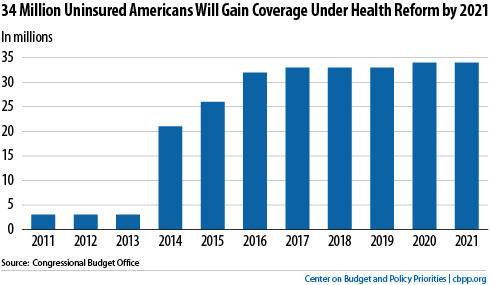off the charts
POLICY INSIGHT
BEYOND THE NUMBERS
BEYOND THE NUMBERS
Five Things You Might Have Forgotten About Health Reform
Receive the latest news and reports from the Center
One year ago today, President Obama signed the historic Affordable Care Act — i.e., health reform. Since most of the recent public attention to health reform has concerned efforts in Congress or the courts to undermine the new law, it’s worth recalling what the law will actually do.
